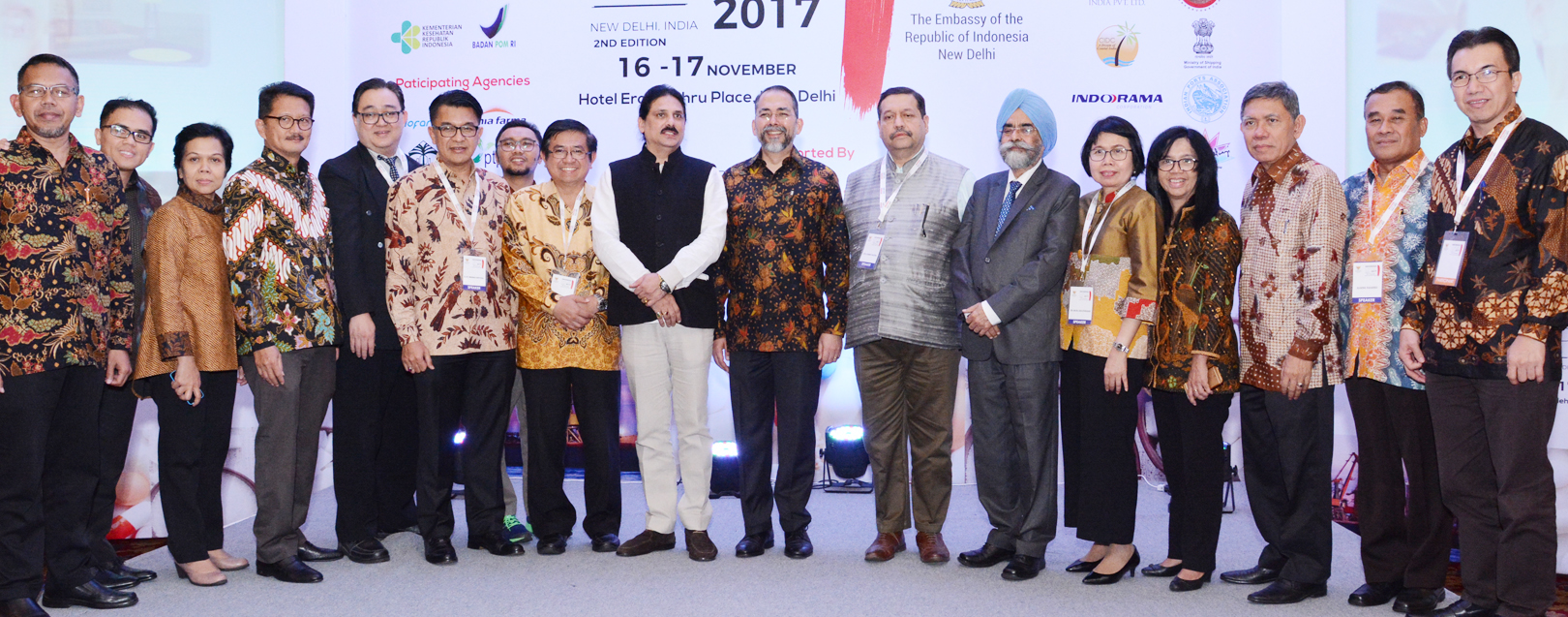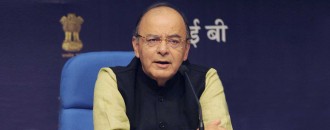
India’s maritime industry has a huge potential: Indonesian Envoy
Ahmad Shariq Khan
Indonesia’s Ambassador to India Arto Suryodipuro has said that India’s maritime industry has enormous potential and the country’s ambitious port-led economic development plan is very much in line with Indonesia's efforts to improve maritime infrastructure and connectivity in the region
“India’s maritime industry has enormous potential,” the Ambassador said while speaking at the 2nd edition of the Indonesia Exposé 2017 organized by the Embassy of Republic of Indonesia in New Delhi.
“India has experience in connectivity packaged in the integration of industrial zones, ports and inland waterways, where almost all transportation routes - land, river and sea - are connected to each other,” he said.
“India now has advanced port management, transshipment and logistics capability,” Suryodipuro said, adding that India’s ambitious port-led economic development plan is very much in line with Indonesia's efforts to improve maritime infrastructure and connectivity in the region.
The Ambassador further highlighted the progress made by the Indonesian Government in the last two years to restructure the country’s maritime potential and develop international maritime cooperation, as well as for creating investment opportunities in KEK Pelabuhan Kuala Tanjung and ten non-Bali tourist destinations.
“There exist boundless untapped trading opportunities between India and Indonesia, and the two sides need to raise the bar to tap them efficiently, he said.
He also urged to remove bottlenecks from both the sides and to ‘work for a shared future’.
The two-day event, held on November 16–17, saw bilateral deliberations aimed at promoting investment opportunities in multiple focus sectors namely Maritime Economies, Sugar, and (bio) pharmaceuticals/bio–plasma industries and other relevant aspects.
Speaking at the event, Indonesia’s Deputy Chief of Mission, Dalton Sembiring said trade complementaries for both sides exist in not just in sectors such as maritime, agriculture, pharma and sugar economy but also in many upcoming areas such as such as fisheries, energy, tourism and food security.
“Today, for the world, India and Indonesia’s strengths are more or less similar – both offer a huge market, skilled workforce and a growing population with increasing purchasing power – all this points towards the bright future the two nations are to witness soon,” said Sembiring.
Addressing the gathering, Himawan Hariyoga, Deputy Chairman at Indonesia Investment Coordinating Board (BKPM) outlined the Government's efforts to make Indonesia the world's maritime axis spelt out in five pillars: maritime culture, marine resources, maritime infrastructure and connectivity, maritime diplomacy, and maritime defence forces.
In the health sector, the industry representatives from the Indonesian side highlighted that currently the coverage of Indonesia's National Health Insurance covers only 69% of the total population of 175 million people, making Indonesia a major pharmaceutical market, especially for critical illness drugs and Active Pharmaceutical Ingredients (API). According to Linda Sitanggang, Director General of Pharmacy and Medical Devices, Ministry of Health (Indonesia), FDI opportunities for the production of medical raw materials in Indonesia are wide open, and currently, there are several drug companies in Indonesia that produce and provide drugs for critical illness.
“In the pharmaceutical sector, India has so far preferred trading rather than investment. But through this activity, we hope Indian trading fraternity from the pharmaceutical field will now open themselves to see Indonesia as an investment opportunity. At least from this activity, we can create a climate of mutual understanding and mutual trust”, said Linda, adding that Bio Plasma remains one of the key areas of potential investment in the future.
As part of the deliberations, the Expose also highlighted the issue of shortage of sugar faced by Indonesia. Officials at the event said, the Ministry of Industry has projected national sugar consumption demand in 2017 to reach 5.7 million tonnes, while national sugar production capability in 2017 is projected to reach only 1.6 million tonnes.
"In the next few years, Indonesia is experiencing a crisis of lack of sugar to meet the needs of households and industries. The temporary solution is to import. Import is only a short-term solution. For a long-term solution, we are looking for Sugar industry investment in Indonesia. In the meeting with the Indian side, there is a discourse towards that direction. Indian sugar industry is very advanced, not only producing sugar alone but also derivatives of ethanol as a form of renewable energy sources," said Professor Agus Pakpahan, Chair of the Indonesian Sugar Association.
Among the concrete results of this second edition of Exposé is an agreement between the Indonesian Sugar Association (AGI) and India's National Federation of Cooperative Sugar Factories (NFCSF). The agreement is to be outlined in the form of an MoU soon. The two sides also agreed in developing the cooperative model for the sugar industry as well as the establishment of the Sugar Sub Committee within the framework of the Joint Working Group on Agriculture.
Further, in the pharmaceutical sector, several Indian companies conducted one-on-one talks for further cooperation plans with Indonesia’s state-owned firms such as Bio Farma and Kimia Farma, as well as with private firm such as Kalbe Farma.






 to success.
to success.